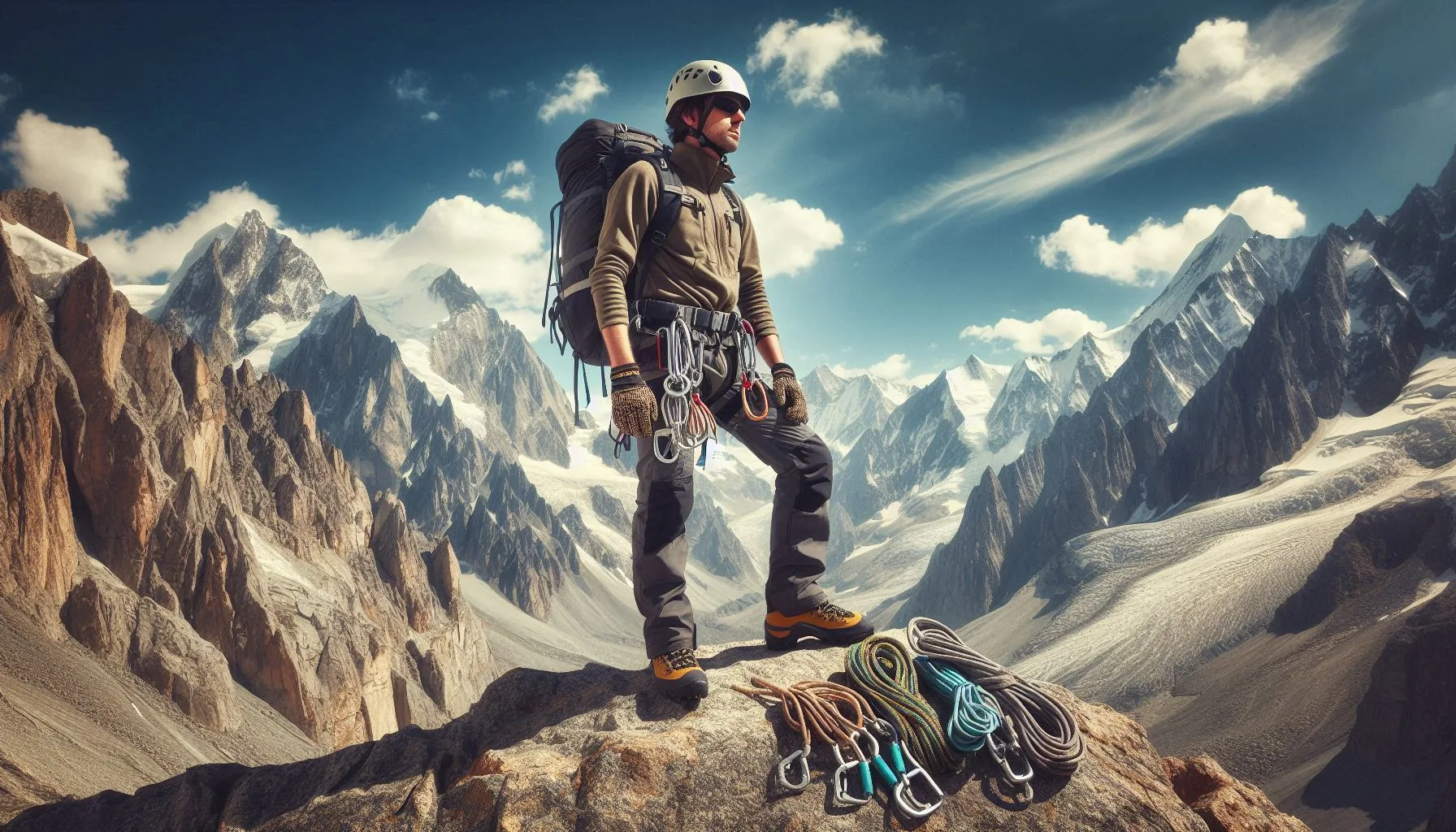Mountain climbing is an exhilarating adventure that challenges both your physical and mental limits. Whether you’re scaling a local peak or tackling a more formidable mountain, being well-prepared is crucial for a successful and safe climb. Here’s a guide to the essential gear you’ll need and some key tips for your first big climb.
1. Proper Footwear
Your boots are one of the most important pieces of gear. Choose a pair of high-quality, well-fitting mountaineering boots that provide ankle support, warmth, and durability. Make sure they are broken in before your climb to avoid blisters and discomfort.
2. Climbing Helmet
Safety is paramount in mountain climbing, and a sturdy helmet is essential. It protects your head from falling rocks, ice, or accidental bumps against the rock face. Make sure the helmet fits snugly and is comfortable to wear for long periods.
3. Harness and Belay Device
A climbing harness is vital for your safety, as it allows you to attach yourself to ropes and anchors securely. Pair it with a reliable belay device for controlled descent and partner safety. Learn how to use these tools properly before your climb.
4. Climbing Ropes
High-quality ropes are a lifeline in mountain climbing. Dynamic ropes, which are designed to stretch slightly under load, are recommended for absorbing the force of a fall. Always check your ropes for any signs of wear and tear before starting your climb.
5. Carabiners and Quickdraws
Carabiners are essential for connecting your harness to the ropes, anchors, and other equipment. Quickdraws are used for clipping into bolts on sport climbs. Always carry a few extra carabiners and quickdraws in case of emergencies.
6. Ice Axe and Crampons
If you’re climbing on icy or snowy terrain, an ice axe and crampons are indispensable. The ice axe provides stability and can be used to self-arrest in case of a fall, while crampons give you the traction needed on ice and hard-packed snow.
7. Weather-Appropriate Clothing
Layering is key to staying comfortable in changing weather conditions. Wear moisture-wicking base layers, insulating mid-layers, and a waterproof and windproof outer layer. Don’t forget a warm hat and gloves, as temperatures can drop rapidly at higher altitudes.
8. Backpack
A sturdy, lightweight backpack is necessary to carry all your gear, food, and water. Make sure it has enough capacity to hold everything you need without being too bulky. A pack with adjustable straps and a waist belt will help distribute the load evenly.
9. Navigation Tools
A topographic map, compass, and GPS device are crucial for navigating in unfamiliar terrain. Even if you’re following a well-marked route, it’s essential to have these tools in case you need to find an alternate path or return to safety.
10. First Aid Kit
Accidents can happen, so a compact first aid kit is a must. Include essentials like bandages, antiseptic wipes, pain relievers, and blister treatments. Knowing basic first aid techniques is also highly recommended.
11. Hydration and Nutrition
Staying hydrated and energized is vital during a climb. Carry enough water and bring along high-energy snacks like nuts, energy bars, and dried fruits. A portable stove and lightweight cooking gear are useful if you plan on longer climbs with overnight stays.
12. Headlamp
A reliable headlamp is crucial, especially if you start your climb early in the morning or if it extends into the evening. Choose one with adjustable brightness and a long battery life, and carry extra batteries just in case.
Tips for Your First Climb
- Start Small: Choose a climb that matches your skill level. Gain experience on smaller, less technical climbs before attempting more challenging peaks.
- Practice Makes Perfect: Practice using your gear, especially your harness, ropes, and belay device, in a controlled environment before your climb.
- Check the Weather: Always check the weather forecast before heading out, and be prepared to change your plans if conditions aren’t favorable.
- Stay Calm: Mountain climbing can be mentally challenging. Stay calm, think clearly, and communicate effectively with your climbing partners.
Embarking on your first big mountain climb is an incredible experience that you’ll remember for a lifetime. By equipping yourself with the right gear and knowledge, you’ll be well on your way to reaching the summit safely and successfully.

